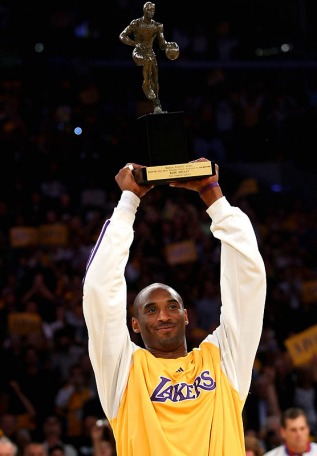Athletes as Role Models
There is no "R-o-l-e M-o-d-e-l" in Professional Athlete
The Supporters
Supporters of this debate argue that professional athletes are not just "models," their models of a specific "role." This is a significant factor because no one person is a model for society's youth in a perfect sense. Everyone is guilty of mistakes and behavioral flaws. The hope is for our youth to embody the good qualities of role models, not the bad. A classic sociological role theory by Robert Merton supports this viewpoint by arguing that, "The influence of a role model comes from providing a reference point for the behaviors associated with specialized social roles. For example, Kobe Bryant, basketball guard for the Los Angeles Lakers, is a role model because of his success on the court. Bryant was consistently productive in helping the Lakers win three consecutive NBA titles from 2000 to 2002. He also displays amazing physical talent as he is regularly featured in game highlights. Therefore, Bryant is a role model for our youth, but only for the specific role of "athlete."
The Opposition
The opposition refutes the claims that professional athletes are not complete role models by saying that the "role model" concept has broadened from a specialized idea to a more comprehensive set of characteristics that society associates with success. Thus, athletes are positions as role models not only for their sport skills and talents, but also for their ability to be successful. Placing a professional athlete in the position of role model is unrealistic. Professional athletes are frequently too young and naive to assume roles of leadership. In fact, there is evidence to support this view. Those immersed in sports, such as professional athletes, tend to be somewhat uneducated in regards to moral and character development. These ideas are accurately portrayed by the words of Former NBA All-Star Charles Barkley.

